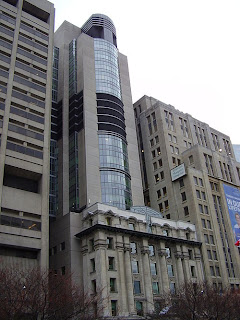I consider myself very lucky to have never lost someone close to me to cancer. Nevertheless, I am all too familiar with the pain, suffering, anxiety, anger, sadness, and grief associated with fighting and losing the battle with this disease, having worked as a research coordinator for the Department of Psychosocial Oncology at Princess Margaret Hospital for almost three years. Every week, I would meet new patients who had been recently diagnosed with acute leukemia, a relatively rare but very nasty blood cancer that strikes children, octogenarians, and everyone in between. I saw many endure treatment, go into remission, and reclaim a sense of normalcy in their lives; but others didn't fare so well, and after getting to know them over many months, it was hard to accept their deaths.
With that in mind, it should go without saying that I am as eager as the next person to see the day when a cure for cancer has been found. It's heartening to notice that so many individuals, organizations, and companies are able to make donations to hospitals and foundations - and it seems more money is raised every year - though I continue to lament the fact that it's even necessary for the public to step up in this way. The government could do a much better job at funding cancer research, especially considering it's in their interest to reduce the astronomical health care costs associated with treating the ever increasing number of people diagnosed with cancer. Also, I don't trust pharmaceutical companies and won't hold my breath until they find a cure; it's so much better for their bottom line to have patients undergo long series of drug treatments than to be rid of the disease for good, so I can't believe that they have a great interest in finding a cure. Cynical? Me? Never...
But that's neither here nor there for the purpose of this blog post, which is to draw your attention to the sad irony of the Cure Foundation's National Denim Day. I just saw a poster in the subway about this event, a full three months ahead of its May date, encouraging companies to let their employees wear jeans to work in exchange for a donation towards breast cancer research. Awareness is raised, money is collected, hope is built. Excellent! However, denim is spun from cotton, and as I pointed out just last month, growing cotton involves heavy pesticide use. In fact, although cotton only covers 2.4% of the world's cultivated land, it consumes 16% of the world's insecticides. Not only is this practice associated with soil, water, and air pollution, it is making people sick: many people living in cotton-growing regions of the world, from farm workers who handle the toxins directly to children going to school near the cotton fields, suffer from acute and chronic pesticide poisoning. But the true irony of Denim Day is revealed by the fact that several pesticides used on cotton in the US are suspected to be carcinogenic by the EPA. I guess since we don't get cancer from wearing jeans (or any of our other cotton clothing), and most of us don't know anyone working in cotton fields, it's easy to forget. I challenge you to remember.
What do you think? Which alternatives could be used in place of jeans? How can we get people to support cancer prevention as well as cure research?
Photo credits: Princess Margaret Hospital; jeans.


The jeans aren't as bad as the 'bake for a cure' thing I saw going around the blogverse a couple months ago. Recipes laden with butter, white flour, saturated fats, processed sugar. I felt a little sick at reading all the muffin, cake, and sweets recipes pouring out. There's a recipe for cancer, right there.
ReplyDeleteI think cancer prevention is going to have to start with re-educating the public on how to eat (not too much, mostly plants) and live. And with getting the food industry to stop influencing public policy.
Bake for the Cure, a.k.a. one small step towards a breast cancer cure, one large step towards heart disease.
ReplyDeleteYou're right, our food makes us sick, from how it's grown to how it's processed to how much of it we eat. The food that does the most damage to the environment and our health is the cheapest and most widely accessible - this needs to change!